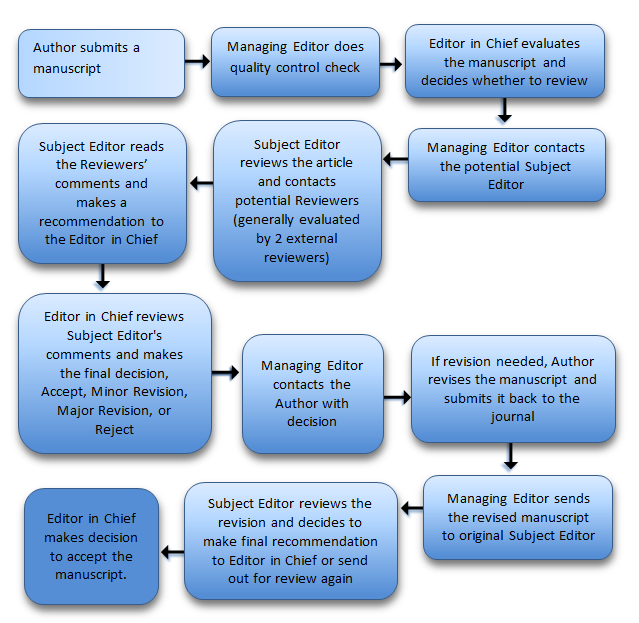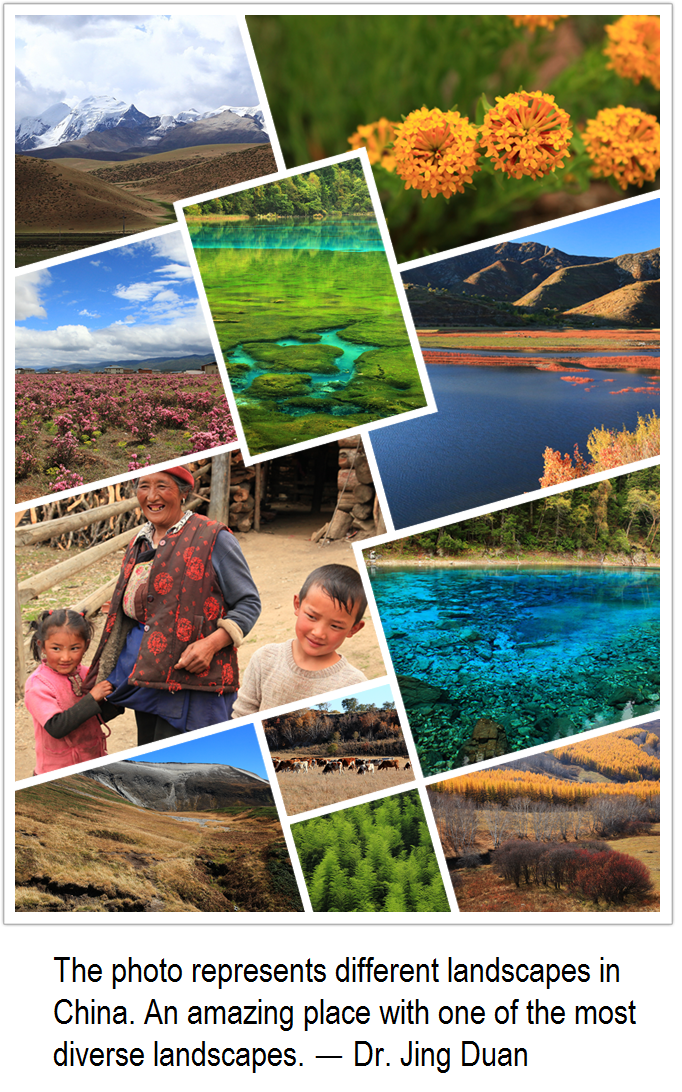Tips for journal editors transitioning from regional to international

Jing Duan, PhD, was the Managing Editor of Acta Ecologica Sinica (International Journal) and Ecosystem Health and Sustainability. She earned her PhD in Environmental management from the Chinese Academy of Sciences after completing an MS in Environmental Studies from the University of Adelaide, Australia. Before her work with journals, she was a Research Associate and Researcher in the Research Center for Eco-environmental Sciences, Chinese Academy of Sciences. Dr. Duan joined Acta Ecologica Sinica (International Journal) as Editor in 2009, and later held the position of Managing Editor of the Journal until the present time. Since 2011, she began representing the Ecological Society of China in the development of a joint journal publication project between the Ecological Society of China and the Ecological Society of America.
Could you give us a brief overview of the aim and scope of Acta Ecologica Sinica (International Journal) and your role as Managing Editor?
Acta Ecologica Sinica (International Journal, (AES) is a bimonthly journal, jointly published by the Ecological Society of China and Elsevier. AES is a comprehensive journal devoted to ecology and its sub-disciplines; it publishes articles on advanced theories and novel experimental results in ecology.
AES publishes papers on animal ecology, plant ecology, microbial ecology, agroecology, forestry ecology, grassland ecology, soil ecology, ocean and aquatic ecology, landscape ecology, chemical ecology, contaminant ecology, urban and human ecology. The sections of the journal include editorial, critical review, research article, short communication and book review.
As a joint journal between the Ecological Society of China and Elsevier, the Ecological Society of China is responsible for editorial works and Elsevier is responsible for production. As Managing Editor, my work includes running the editorial office in Beijing, overseeing the whole editorial process from submission to receipt of the final manuscript, managing peer reviews, coordinating with the Editor in Chief, Editorial Board members, reviewers and authors, and communicating with Elsevier while they oversee the production process.
In 2009, Acta Ecologica Sinica (International Journal) became an English academic journal, which is when you joined to help its transition from a local to international journal. What changes in approach, as a result, did the Journal’s editors have to adopt?
Acta Ecologica Sinica(International Journal)transited from a Chinese translated journal to an English only journal in 2009 and started to use Elsevier’s submission system to receive submissions from all over the word. As an international journal, the journal's purpose changed. We changed from presenting only advanced Chinese ecological sciences to publishing good ecological sciences worldwide. The service goal changed from assisting Chinese authors to serving authors from all over the word.
In order to meet the requirement to be an international journal, we worked with the Editor in Chief to invite more scientists from outside China to set up a new editorial board and invited more foreign peers to become reviewers to review articles. We also began to emphasize that the language be understandable. We require that authors who are not native English speakers enlist the aid of native English-speaking colleagues or professional polishing services to improve language.
What changes in approach do you expect from authors?
(1) Learn more about international STM publishing, including regulations, procedures, as well as ethics.
(2) Spend more time to undertand journals, especially their aims and scope. Submitting a paper to an inappropriate journal could waste time for both of editors and authors
During the transition, you helped develop and set up the journal’s working mechanism and monitored the operation, production, and publication of the journal. Could you explain step by step the submission and review process that has now been established and the roles of the people involved at the journal end?
The workflow of AES is as follows:

The Editorial Board of AES currently consists of 43 scientists from 7 countries, including China, United States, Australia, Japan, Korea, Germany and Canada. More than 50% of Editorial Board members come from other countries outside China. The main areas of work for Editorial Board members include handling the peer review process, examining the peer reviewers' reports on articles, and providing an overall opinion on whether to publish to the Editor-in-Chief. Six well-known scientists form the International Advisory Board to consult on journal development and provide talent support for journal development.
In light of your experience with editing, authoring, and Chinese authors, what advice do you have for international journal editors who receive submissions from non-native English speaking authors?
(1) Use clear and easy-to-understand English when writing the Instruction for Authors, which makes it convenient for nonnative-English-speaking authors to know the requirements of the journal.
(2) Clarify the detailed requirements of the editorial policy your journal has, such as regarding ethical issues, to help authors know what they have to do and what they should not do.
(3) Suggest that authors use language polishing services, if the science is good but the English is not understandable.
Given your experience, do you have any advice for journal editors who want to transition their journal from local to an international one?
(1) Clarify the aims and scope of the journal. A journal has to be unique.
(2) Active and practical Editor in Chief and Editorial Board members are really important and necessary for the journal, especially in the early stage.
(3) Set up a fast but high-quality peer review process, and especially invite scientists from other countries to review articles as much as possible.
(4) Implement running a journal on international platforms to receive scientists from all over the world.
Through your own research you have joined the ecological discourse on sustainability. What do you feel are the top one (or two) trending topic(s) in ecology that your journal is interested in and why?
Acta Ecologica Sinca (International journal) publishes research that covers all areas of Ecology. To be specific, we hope to publish more high-quality and featured research pertaining to local and regional levels but also having international significance, such as unique species in Asia, Africa etc. or unique landscape, e.g., the Tibetan Plateau.
 There are so many ecological issues emerging around the world. We need ecology to play a more important role in decision making to promote sustainable development. However, how do we apply ecological science in decision making to promote sustainable development? It would be an interesting topic for not only ecologists but also policy makers. We need new approaches and practices, and we also need platforms to report and distribute the latest high-quality research. The Ecological Society of America and Ecological Society of China are working together to create a high-quality publication, Ecosystem Health and Sustainability (EHS), to publish articles in this field. EHS will publish articles on the advances in macroecology and sustainability science, on how changes in human activities affect ecosystem conditions, and on systems approaches for applying ecological science in decision making to promoting sustainable development.
There are so many ecological issues emerging around the world. We need ecology to play a more important role in decision making to promote sustainable development. However, how do we apply ecological science in decision making to promote sustainable development? It would be an interesting topic for not only ecologists but also policy makers. We need new approaches and practices, and we also need platforms to report and distribute the latest high-quality research. The Ecological Society of America and Ecological Society of China are working together to create a high-quality publication, Ecosystem Health and Sustainability (EHS), to publish articles in this field. EHS will publish articles on the advances in macroecology and sustainability science, on how changes in human activities affect ecosystem conditions, and on systems approaches for applying ecological science in decision making to promoting sustainable development.
Thank you, Dr. Duan.
Interviewed by Alagi Patel.
Note: Jing Duan passed away in March 2017 in a tragic accident. This interview, which we conducted in April 2014, is a tribute to the great thought leader she was in the sphere of scholarly communication.
Published on: Apr 09, 2014
Comments
You're looking to give wings to your academic career and publication journey. We like that!
Why don't we give you complete access! Create a free account and get unlimited access to all resources & a vibrant researcher community.







